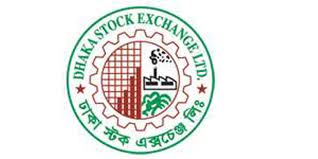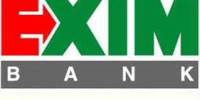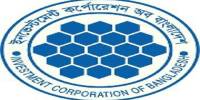CHAPTER: 04
Different Regulatory Authorities of capital Market & Their Functions, Rules and Regulations
Security and exchange commission:
From ‘80s especially from early 90s Government has started pursuing open market policy resulting a shift from public sector led growth to private sector led economic development, industrialization, employment generation and national growth. The capital market plays a pivotal role for financing industrialization and national growth in developed and developing countries. For this reason, to build up an efficient, disciplined and transparent capital market
In Bangladesh, through enactment of the Securities and Exchange Commission Act 1993 (Act15 of 1993) the Securities and Exchange Commission (SEC) was established as capital market regulator with a view to ensure proper issuance of securities, protect interest of the investors in securities, develop the capital and securities markets and regulate the capital and securities markets on June 8, 1993. The Commission is constituted with a chairman and four full time members but currently two posts are vacant. The chairman and the members shall be appointed from amongst the persons of capability and standing who have shown capacity in dealing with problems relating to company matters, securities markets or have special knowledge and experience of law, finance, economics, accountancy and such other discipline as, in the opinion of the Government, shall be useful to the Commission. Beside Commission have five Executive Directors, six Directors, one Commission Secretary and sixteen Deputy Directors.
According to the securities law, the Commission ensures proper issuance of securities and registers supervises and regulates the stock exchanges, broker/ dealers, merchant bankers, portfolio managers, mutual funds, asset management companies, trustees, custodians,
Depository Company and all other intermediaries, persons or institutions related with capital market. The expenses of the Commission are met out of the fund contributed by the government as grants and money received from other sources viz. consent fee for raising capital, registration fee etc. The Commission discharges the responsibilities reposed on it through administration of the Securities and Exchange Commission Act, 1993, the Securities and Exchange Ordinance,
1969. From ‘80s especially from early 90s Government has started pursuing open market policy resulting a shift from public sector led growth to private sector led economic development, industrialization, employment generation and national growth. The capital market plays a pivotal role for financing industrialization and national growth in developed and developing countries. For this reason, to build up an efficient, disciplined and transparent capital market in Bangladesh, through enactment of the Securities and Exchange Commission Act 1993 (Act 15 of 1993) the Securities and Exchange Commission (SEC) was established as capital market regulator with a view to ensure proper issuance of securities, protect interest of the investors in securities, develop the capital and securities markets and regulate the capital and securities markets on June 8, 1993.
Functions of the Commission:
• Regulating the business of the Stock Exchanges or any other securities market
• Registering and regulating the business of stock-brokers, sub-brokers, share transfer agents, merchant bankers and managers of issues, trustee of trust deeds, registrar of an issue, underwriters, portfolio managers, investment advisers and other intermediaries in the securities market
• Registering, monitoring and regulating of collective investment scheme including all forms of mutual funds
• Monitoring and regulating all authorized self regulatory organizations in the securities market
• Prohibiting fraudulent and unfair trade practices relating to securities trading in any securities market
• Promoting investors’ education and providing training for intermediaries of the securities market
• Prohibiting insider trading in securities
• Regulating the substantial acquisition of shares and take-over of companies
• Undertaking investigation and inspection, inquiries and audit of any issuer or dealer of securities, the Stock Exchanges and intermediaries and any self regulatory organization in the securities market
• Conducting research and publishing information
Regulatory Frame work of SEC
Departments of Securities and Exchange Commission
Every organization has several departments to perform its rules effectively and efficiently. Securities and Exchange Commission is not exceptional. The departments of the Securities and Exchange Commission are shown in the following Diagram:
Administration and finance department:
Prime functions of the department are human resource management and conducting internal administration related activities of the Commission. The functions are followings:
• Recruitment: In case of recruitment they are required to follow some orders of rules –
• Personal File Management: It is very much important especially for retirement.
• Liaison with ministry: One of the main responsibilities of the administration and finance department is to maintain liaison with ministry.
• Gazettes notification: For publication they take help from the Bangladesh
Government (BG) press
• Foreign Training: They Handles different types of Foreign Training, say for example, IOSCO training. In case of handling foreign training they are required to issue government order (G.O.)
• Management of State land of the Commission: Previously they didn’t have any state land. Recently they purchased their own land where they are hopeful to build a spectacular & functional office.
• Public Procurement: They are required to perform these activities according to the
Public Procurement Rule (PPR) 2008 and General Finance Rule (GPR).
• All types of Finance: They follow General Finance Rule (GPR) to conduct finance activities.
• Necessary announcement in public media
• Sell Out according to condemnation policy
• Tender call and payment
• Stores management
• Common Services Management such as Telephone and internet
• Vehicles Management
• Budget making
• Fund release of budget
• Help Government Audit• Special Assignment: They also perform several types of special assignment of the Commission, if required
CMRCC Department:
Capital Market Regulatory Reforms and Compliance Department issues all securities related rules and regulations on Commission’s behalf and also amends those, if necessary, following due process.
SRMID (Supervision and Regulation of Markets and Intermediaries Department):
The Main Responsibilities of SRMID are as follows:
• To examine, supervise, and follow-up of the complaints lodged with the Commission.
• To examine, monitor, supervise and follow-up of the Price Sensitive Information of the issuers.
• To examine and process for approval of transfer of shares outside the trading system
• To oversee declaration by the sponsor/director for buy/sell/otherwise transfer of shares.
• To oversee and monitor the monthly shareholding position submitted by the issuer.
• To oversee and monitor the activities of DSE and CSE.
• To oversee and monitor the activities of the stock dealers/ stock brokers of DSE and CSE.
• To oversee and monitor the activities of the merchant banks
• To monitor Dividend compliance,
• To monitor AGM of the issuers,
Central depository system department:
The Central Depository System Department of the Commission supervises and performs the following functions under the Depository Act, 1999 and regulations made there under:
• Functions of Depository Participant (DP).
• Converting physical share certificates of listed companies into dematerialized form.
• Issuance of securities in dematerialized form and transfer of the same upon transaction of said securities.
• Issuance of directives, orders concerning CDS.
Registration department:
Registration of securities market related parties and suspension or cancellation of those
Parties are performed by the registration department. They also maintain all types of
Registration records of different parties. The registration department issues registrations
Certificate mainly to the following parties:
Capital issue department:
The Securities and Exchange Commission through Capital Issues Department accords consent to issuers to publish prospectus for raising capital through public offering and to making an issue of capital of public limited and private limited companies on private placement basis under the Securities and Exchange Commission (Public Issue) Rules, 2006 and the Securities and Exchange Commission (Issues of Capital) Rules, 2001 respectively. The Commission also gives clearance of rights issue offer document under Rights Issue Rules, 2006 and gives registration to issuance of asset backed securities under Securities and Exchange Commission (Asset Backed Securities Issue) Rules, 2004 etc.
Enforcement department:
This department is the last address of all types of complaints. They receive complaints from all of the other departments of the Commission. After performing extensive study of the cases
Enforcement department takes necessary actions against the related parties.
If the cases is required to submit to the court then law department comes into the scene. Enforcement Department of the Commission takes enforcement actions against the followings parties who violate and fail to comply with securities laws:
• Stock broker/stock dealer,
• Merchant Bankers, and
• Other intermediaries related to capital market, and
• Issuer companies or their directors
• Chartered Accountant Firm
• Financial Advising Firm.
• Any other parties related to Securities and Securities Market.
Law department:
Functions of law department are as follows:
• Assisting the lawyers appointed by the Commission to defend the court cases filed by SEC or against SEC.
• Giving legal opinion on different issues sent by other departments of the Commission.
• To file and conduct certificate cases to recover penalty imposed by the Commission.
Corporate finance department:
Corporate Finance Department is mainly responsible for monitoring and supervising the activities related to the financial report of the issuer companies. They always work in order to ensure that the true and fair financial report of issuer companies be prepared so that maximum possible investor’s protection is established. This department examines audited annual financial statements and un- audited half yearly financial statements of the said issuers and ensures compliance by the issuer the provision of securities laws concerning appointment of auditors. They also monitor the corporate governance of the issuer companies so that corporate governance of the companies can be improved. Some of the usual activities of the corporate finance department are as follows.
• Explanation sought from listed companies on the basis of observations of the Commission as well as qualified audit report on the audited financial statements submitted by those companies. If their explanation is not satisfactory then they send to the enforcement department to take actions.
• Sending to the enforcement department to take actions for non- submission of audited financial statements for the period ended.
• Explanation sought from audit firms as regard to the matters relating to audited financial statements of issuer companies and if their explanation is not satisfactory then they send to the enforcement department to take actions.
• Sending to the enforcement department to take actions for non-compliance with the provisions of BAS in the preparation of financial statements for the half –year ended.
• Explanation sought from the auditor issued un-qualified audit report of a listed company while the facts warrant the issuance of qualified auditor report. If their explanation is not satisfactory then they send to the enforcement department to take actions.
• Sending to the enforcement department to take actions for non submission of status report on compliance of corporate governance guidelines.
• Explanation sought from the non compliance of corporate governance guidelines. If their explanation I s not satisfactory then they send to the enforcement department to take actions
• Giving suggestion to the ICAB for taking necessary action to the audit firms if they violate and do not comply with the regulatory standard.
• Sending to the enforcement department to take actions as the company re-appointed its existing statutory auditors for a consecutive period exceeding three years without taking Commission’s clearance.
• Giving advice to comply with the provisions of BAS regarding preparation of audited financial statements, submit its report on utilization of IPO fund to the Commission.
• Sending to the enforcement department to take actions for non-compliance of its report on utilization of IPO fund to the Commission
MIS department:
This department is mainly responsible for the management of the information system of the Commission. The functions of the department are as follows:
• Providing technical assistance and information management support to all of providing logistics support to the seminars and investors awareness programs arranged by the R&D department.
• Managing the Local Area Network (LAN) connection.
• Development of monitoring.
There are four System used by the Securities and Exchange Commission. These are followings-
department of the Commission.
• Ensuring smooth functioning of the specialized SEC software named Securities and
Exchange Commission Automated System (SECAS).
• Updating the SEC website whenever necessary.
One is in the Development Stage which is Online Electronic Filing System. If it is implemented then it will be possible by the listed companies to submit their compliance report instantly to the Commission. Hopefully, this will help commission improve their monitoring process.
SECAS (Integrated Securities and Exchange Automated System):
It has nine modules. These modules are used by the official of different departments to perform their roles effectively. The modules are followings:
Random Inspection Selection System:
This system helps commission to select which market intermediaries to visit in each month.This system generates a number. Based on the number generated by the system Commission visit and inspect market intermediaries.
Lottery Verification System:
It is developed by the BUET for SEC. It is used for verification of the IPO lottery. Previously there were lots of complain about the IPO lottery performed by the Issue manager and issuer.Because of that SEC was forced to bring this type of software to verify the lottery. It is to be noted that in Bangladesh, always IPO is highly oversubscribed. That’s why; lottery and allotment process is monitored so carefully.
Digital Paper Clipping System:
This system is used as alternative of the materialized paper. It brings lots of cost saving for the Commission.
Research and development department:
Research and Development Department of the Commission performs the followings activities:
• Conducts investors’ education program for the general investors.
• Impart capital market related seminar for various government and non-government organizations.
• Prepares and publishes Commission’s various publications regularly and
• Furnishes various reports and information to the government and other institutions including Ministry of Finance and different regulatory authorities.
Surveillance department:
This is very much important department of the commission because they daily monitor the activities of the market. To ensure transparency and accountability of the Dhaka Stock Exchange Limited and Chittagong Stock Exchange Limited they use on line surveillance software & non-trading version of work station. They perform regular trade analysis and inspection. The SEC surveillance staff time to time informs the top management of the Commission about the market condition and discuss with the management of the respective issue, if necessary. At the end of the trading, a daily trade report pointing out any highlights or abnormal activity found during the trading is prepared and submitted to the chairman and the members of the Commission. The main objective of the Surveillance Department of the Commission is to promote market integrity in two ways –
Some are parts:
















